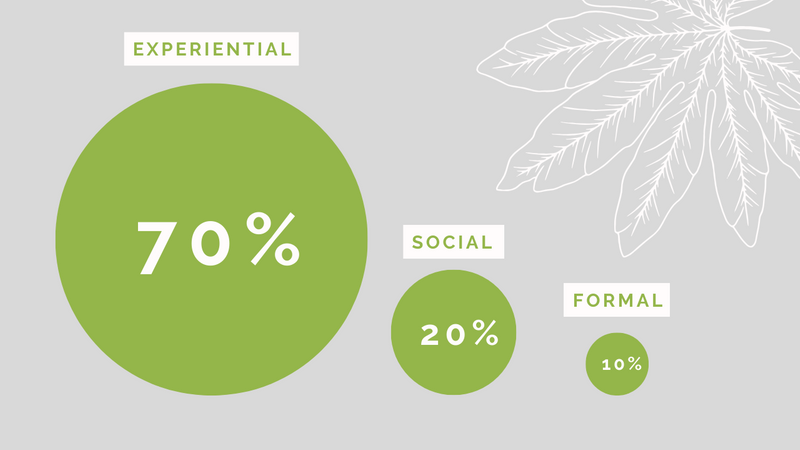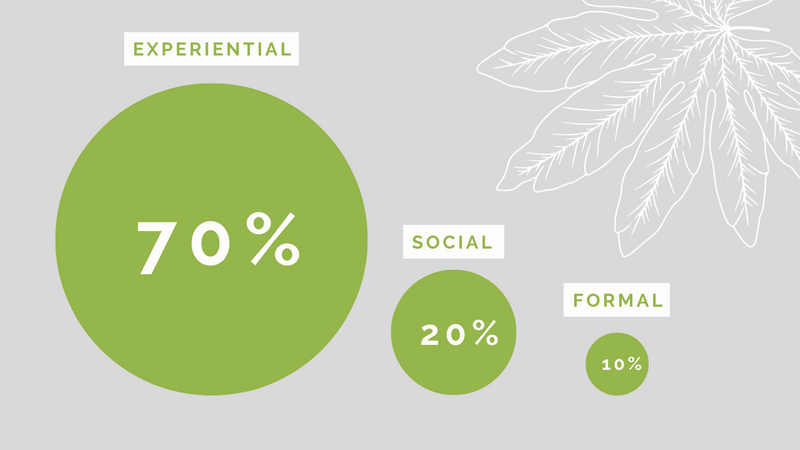Not all learning happens in a classroom.
In fact, most learning happens in informal settings: on the job, or when we're working with others.
The 70/20/10 Model helps us see all of the opportunities we have to grow and build our skills.

10% Formal Learning
Think of formal learning as something structured. It's got a defined format and a clear objective. It could be a college course, reading a book, or even taking this Byte.
According to the 70/20/10 Model, formal learning should only be 10% of our professional development.
Formal learning is great to build background context, but should be paired with social learning and experiences to turn concepts into practical skills.

Quiz
If you wanted to learn to cook a new dish, which of these would be a good formal learning activity?
20% Social Learning

The 70/20/10 Model suggests that 20% of professional development occurs through social learning.
Social learning activities allow us to learn from others. This might take the form of job shadowing, mentoring, coaching, or other group activities. Social learning gives us the benefit of feedback and encouragement.
Quiz
If you wanted to learn to cook a new dish, which of these would be a good social learning activity?
70% Experiential Learning
Most learning takes place through hands on experience. In other words, we learn best through doing. Experiential learning is what happens on the job or as we go about our day to day lives.
Experiential learning allows us to get immediate feedback through our results: what works, what doesn't, what are the consequences.
The key to experiential learning is being mindful. It's up to you to reflect on your experiences, notice the results, and adjust your behaviour accordingly.

Quiz
If you wanted to learn to cook a new dish, which of these would be a good experiential learning activity?
Take Action
Remember the 70/20/10 Model when it's time to learn something new. Formal learning is good to build a foundation, but it's likely that there are many experiential and social learning opportunities at your finger tips.
In fact, try picking a skill you are currently interested in building. Make a list of what social and experiential learning opportunities you could create for yourself.

Your feedback matters to us.
This Byte helped me better understand the topic.
